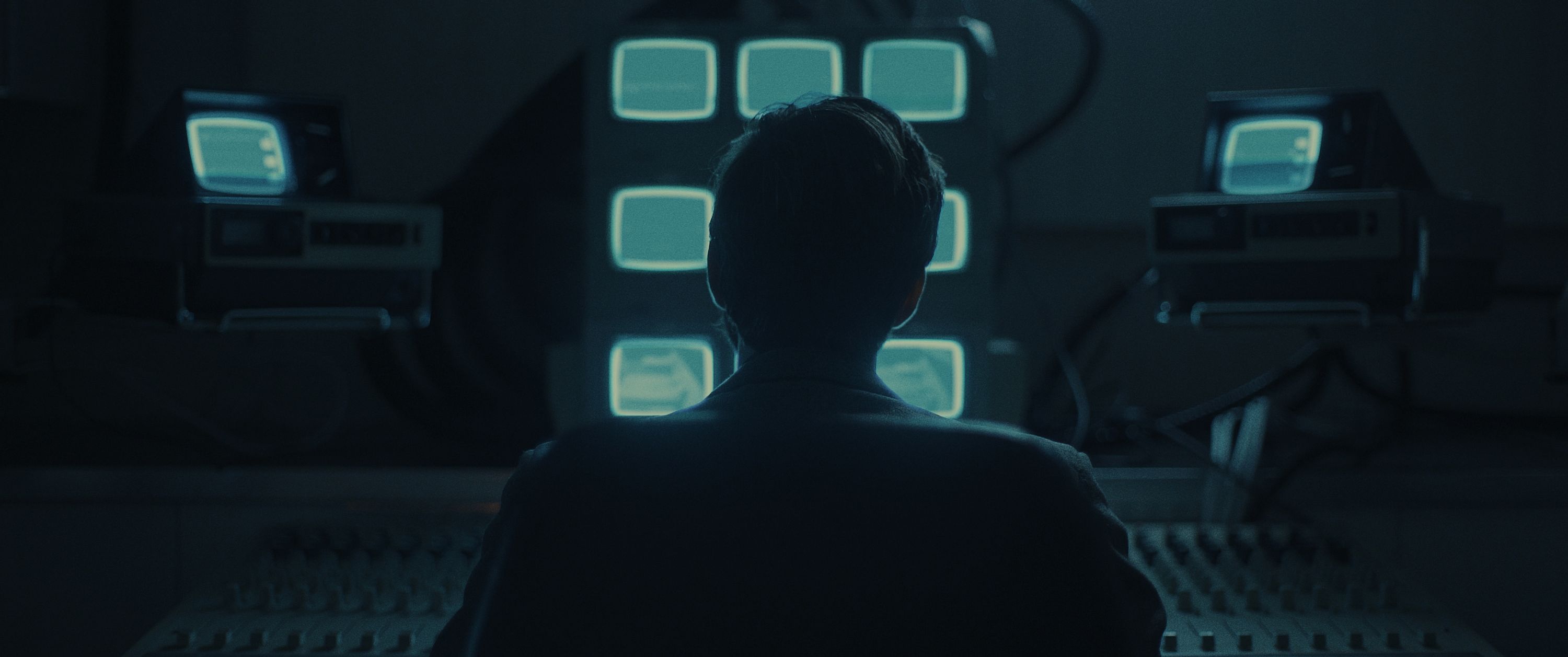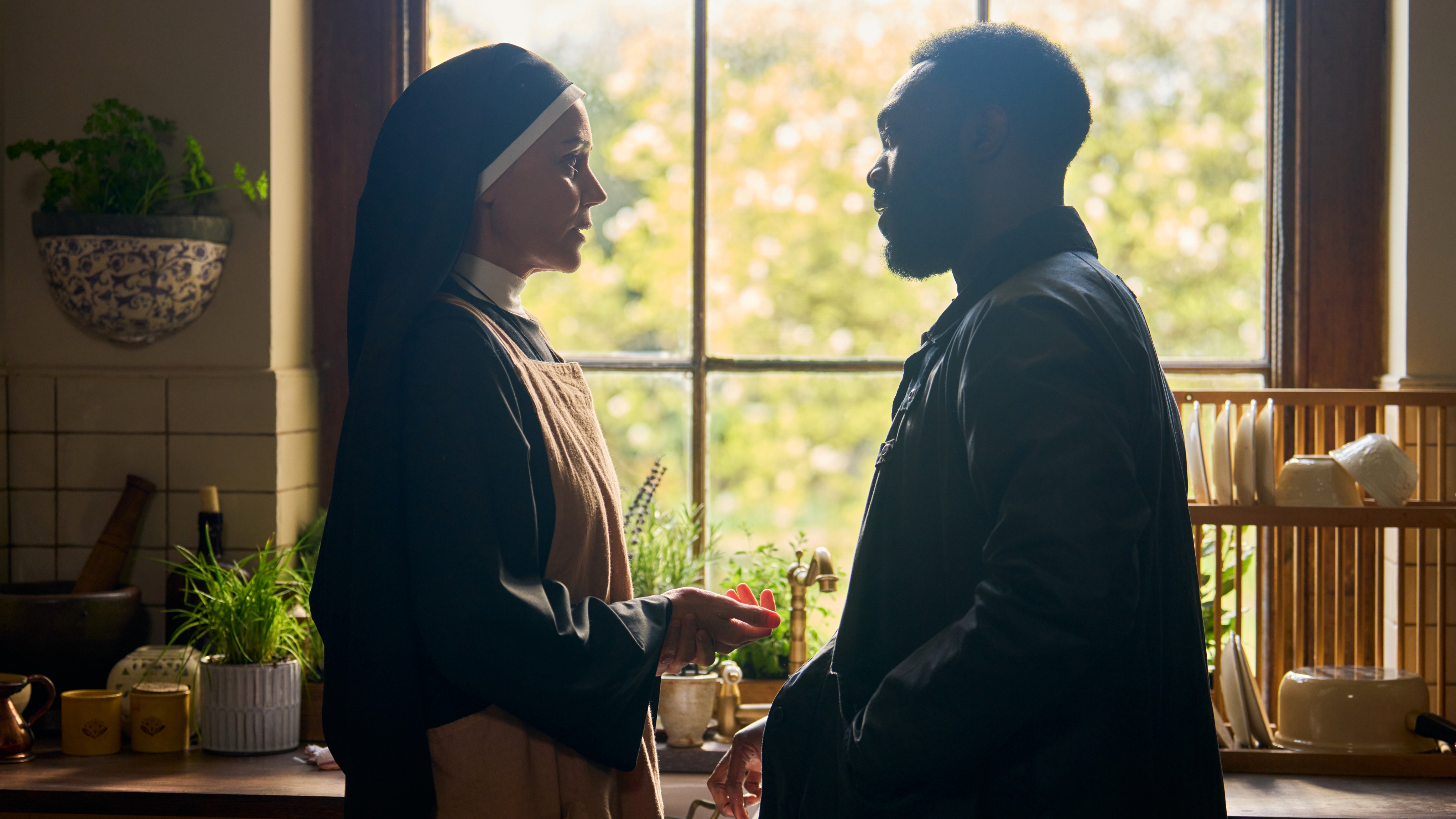What to Watch Verdict
'Come True' lulls its audience into an abstract trance through sleepytime inquisitions, and while the ending will frustrate some, there's still too much talent on display for a full dismissal.
Pros
- +
😴 A thoughtful horror story.
- +
😴 Makes the most of budgets.
Cons
- -
😴 That ending.
- -
😴 Too slow for some.
Trends, in any genre, come and go. Cheeseball 80s slashers gave way to 90s meta-ness, the 00s were all about “dark, gritty” reboots, and so on. Today, A24’s influence through films like The Witch and Hereditary (among others) have inspired a brand of filmmaking defined by existential, often unexplained narratives. A film like Anthony Scott Burns’ Come True is both a byproduct and symptom of the times, stoking intrigue through ponderous storytelling that never wants to offer answers, only challenge our scope of “normal” through blurred lenses of reality. Ambitious, engaging but ultimately weakened by its narrative ambiguity (we'll get there).
Julia Sarah Stone stars as Sarah, a teenage loner who’s seen dodging calls from her mother and sleeping on park benches. We’re not sure why, much like how we know nothing about the nightmares she experiences, which are inhabited by glowy-eyed figures. Sarah signs up for a sleep study, where she meets researcher Jeremy (Landon Liboiron), who confesses that the technology his team developed can record a patient’s dreams. The lines between reality and fantasy blur as subconscious inhabitants start making connections with the real world. Is Sarah safe from her demons once thought only to reside in dreamland?
I praise Come True in comparison to The Vast Of Night since Anthony Scott Burns establishes sci-fi wonderment on a slashed budget. Sarah’s night terrors are spectacularly unsettling, as the camera slowly pans closer and closer to a shadowy outline, back turned, in monochrome saturation, inching towards an anonymous danger. Burns doesn’t provide context, nor reason. In her mind, Sarah’s alternate reality is a blend of Silent Hill imagery in surreal 3D spaces that’s all about lingering inexplicableness. A recreation of sleep paralysis, even, in the way cinematography lurches us closer to a gaze that can not be averted, no matter how desperately we want the lens to pan away. There’s artistry in the dread that’s inspired by Insidious at times, as the shadow beings invade screens.
Now, Come True isn’t scary-boo-gotcha horror. It’s “wow, what are dreams even” inquisitive, as Burns’ narrative focuses less on monsters and more the science behind REM sleep cycles. Where our minds travel when our eyes close shut. Jeremy’s cloth suits make Sarah look like an extra in Tron before any games boot up. His monitors display an almost binary, dash-lines graphic view that’s capable of showing pictorial impressions. Hence my The Vast Of Night comparison, where technological aspects are minimal, yet Burns can envelop his ideas within a functional, blips-and-reason universe that exists without impediments. In this regard, Come True is a success—an experiential film that questions, comments, and lives in these unfurling moments with wide-eyed responses.
Then the ending hits.
Come True, at just above one-hundred minutes, keeps audiences on its hook by applying just enough pressure when another dig-in is required. Sarah’s journey favors long stretches of silence that accompany subplot details meant to be noticed, but not spoken aloud. One might assume her fleeing from home, refusals to interact with her mother, and the absence of a father figure might amount to abusive reveals later. Others might take notice of text messages she ignores, or when she falls asleep and wakes up, or what she sees in Jeremy’s vampiric dream outputs.
A lot is going on here: out-of-body experiences, unexplained invasions of the cerebral kind, ghoulish shapes that can only be seen by sleepers. It all feels to be building somewhere, and then Burns drops a single incoming message to Sarah’s phone, in the last *seconds* of screentime, that blows every setup, diversion, and structural hint into smithereens. We’re left with the film’s most bombshell question mark, and then credits.
Many of you are going to be turned off, infuriated even, and you have every right.
As an appreciator for the lovesick, reclusive lullaby that is Come True for the film’s near entirety, even I’m irked by the film’s screeching halt. Still, Anthony Scott Burns’ talents are recognizable for such a long stretch that all the weirdness, and silence, and appreciation of life’s never-knowingness is worth more than the summation of a few seconds. I like Julia Sarah Stone as this nomad high schooler who forges into an unseen world only made real when our reality ceases. I appreciate Burns’ desire to buck traditional normalities for something more hazardously poetic. An alternate ending may have added another star back to my review, but I’m still in support of this reassurance that, well, what does it even mean to be awake?
Come True is a part of our Fantasia Festival 2020 coverage.
Matt Donato is a Rotten Tomatoes approved film critic who stays up too late typing words for What To Watch, IGN, Paste, Bloody Disgusting, Fangoria and countless other publications. He is a member of Critics Choice and co-hosts a weekly livestream with Perri Nemiroff called the Merri Hour. You probably shouldn't feed him after midnight, just to be safe.












